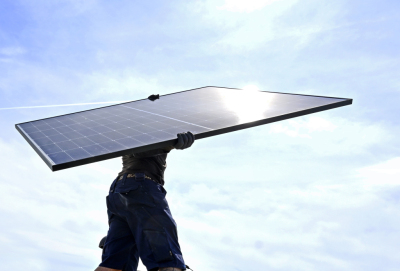EU solar power expansion could decline for the first time in 10 years


Solar energy expansion in the EU is facing its first decline in more than a decade, as governments cut subsidies for private rooftop solar installations, according to industry data released Thursday. The industry association SolarPower Europe expects newly installed capacity to reach 64.2 gigawatts (GW) in 2025. This would be a 1.4 percent decline compared to the 65.1 GW recorded last year.
This development is also affecting Germany, the EU's largest solar market. Although the country recently reached half of its statutory expansion target for 2030, as the German Solar Industry Association (BSW) announced at the beginning of July, the pace of expansion has also recently slowed here. The BSW warns that the expansion target for 2030 is therefore at risk.
Shift in political priorities
The trend reflects a shift in political priorities in Europe: Member states have scaled back their green investments in the face of strained budgets due to spending on defense and domestic industry. The decline would be the first since 2015 and would end a period of rapid growth. In 2023, solar capacity was expected to increase by 51 percent, but last year growth slowed to 3 percent. Just last month, solar power was the largest single source of electricity generation in the EU, accounting for 22 percent, thanks to a sunny June.
Current figures now indicate that the EU could miss its 2030 target. According to the association, it is approximately 27 GW short of the 750 GW of solar capacity needed by that time. The main reason for the downturn is the collapse in private rooftop systems. Their share of newly installed capacity is expected to fall to 15 percent this year, after being around 30 percent between 2020 and 2023. In addition to Germany, France and the Netherlands have also reduced their subsidies for private solar systems.
APA/Reuters
energynewsmagazine




